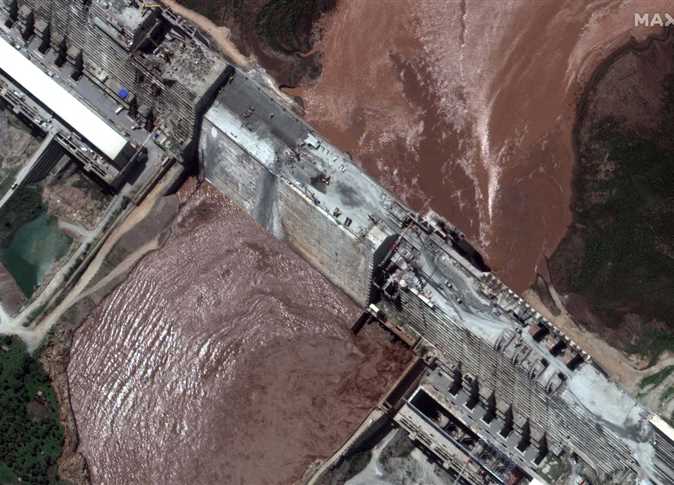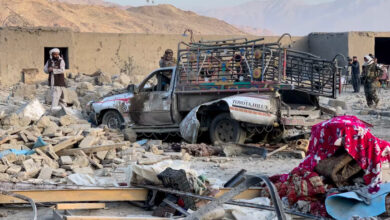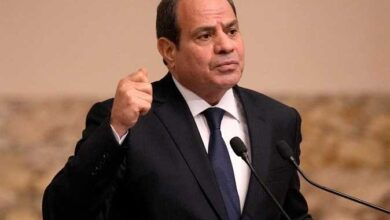
Professor of Geology and Water Resources at Cairo University, Abbas Sharaky commented on US President Donald Trump’s statements regarding the Grand Ethiopian Renaissance Dam (GERD) in a post on his Facebook account titled “President Trump Flirts with Nobel Prizes Through GERD.”
Sharaky noted that Trump has brought up the GERD dispute for the second time in three weeks since assuming his second term.
Trump tweeted on June 21, denouncing the matter, “I will not receive the Nobel Peace Prize for preserving peace between Egypt and Ethiopia. The huge dam built by Ethiopia, with stupid funding from the United States, significantly reduces the flow of water to the Nile River.”
Earlier on July 14, Trump said, “We worked on the Egypt issue with its neighbor, a country that has been a good neighbor and a friend of ours, but they built a dam that blocked the flow of water into the Nile River. I don’t know why they didn’t solve the problem before they built the dam, but it’s nice to have water in the Nile River. It’s a very important source of income and life. It’s the lifeline for Egypt, and this problem will be solved very quickly. We’re making good deals.”
Sharaky noted that President Trump sponsored the negotiations from November 2019 to February 2020, but they failed to reach an agreement after Ethiopia was absent on the signing day, even though Egypt signed with initials.
He pointed out that Trump is trying to show that he prevented escalation between Egypt and Ethiopia, and that the current calm has resulted from this effort, even though no serious conflict has occurred between the two countries.
Sharaky said that Trump claimed that the US foolishly financed the dam, even though it was previously unknown that there was direct US funding for the dam – rather what was known was there was American aid in various fields, amounting to one billion dollars annually, which the Ethiopian administration could then direct to the dam.
He added that this funding occurred during Trump’s first term (2017-2021).
Sharaky continued: “I believe that the term ‘stupidly financed’ is intended to direct blame at the previous administration, considering it was the one who did this.”
Trump also accused it of spending US funds to support Ukraine and the Middle East, and that he would recoup this money by concluding Gulf deals and a mining agreement with Ukraine.
How Trump aims for a solution
He explained that Trump is trying to court the Nobel Prize, portraying the GERD crisis as having reached its peak and that he will seek to resolve it quickly, to add it as another of his achievements.
Trump frequently mentions stopping the wars between India and Pakistan, Serbia and Kosovo, Congo and Rwanda, and Iran, and may even halt Israel’s war on Gaza, Sharaky noted.
He stressed that the GERD is not a life-or-death issue for Egypt, lest some see it a major bargain to achieve a demand that Egypt strongly rejects, particularly the displacement of Palestinians in Gaza to Sinai.
Sharaky pointed out that the past five years have been the most harmful to Egypt because of the GERD, as they witnessed the first filling of the GERD reservoir, storing part of water and allowing another part to flow.
Without the High Dam and Egyptian measures, a catastrophe would have occurred, Sharaky said, noting that this year is better than previous years because our annual revenue will come in.
He continued that President Trump could invite all three parties—Egypt, Sudan, and Ethiopia—to reach an agreement in less than a week, as conditions are currently better than before, thanks to the completion of the first filling, which was a major point of contention in previous negotiations over the number of years of filling.
This approach could encourage reaching an agreement that regulates the repeated filling and subsequent operation, he said, and, if possible, reduces the storage capacity, which poses a significant threat to the security of Sudan and Egypt.
Reaching an agreement would also ensure consultation, coordination, and the conclusion of an agreement regarding any future water projects, he explained.




